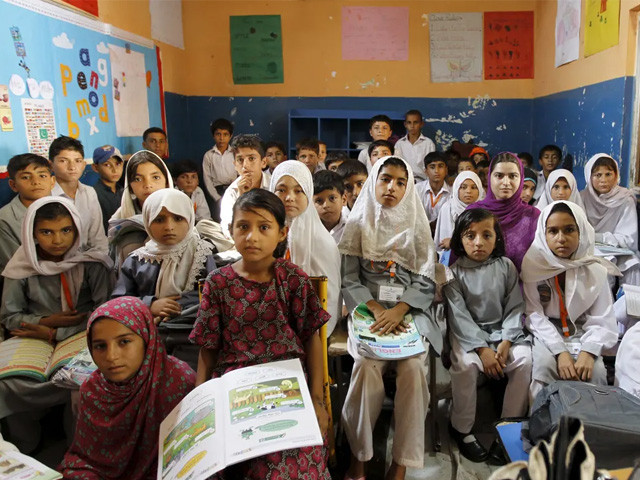The recent declaration of an education emergency by the prime minister in Islamabad marks a critical juncture for Pakistan's education system. This announcement, despite education being a provincial subject post-18th Amendment, aims to unify efforts across all provinces and territories to address the severe educational challenges facing the nation. With representatives from the provinces in attendance, the call for cooperation and compliance underscores the gravity of the situation.
The statistics are stark: 26.2 million children between the ages of five and 16 are out of school. For those who do attend, the quality of education is often substandard, heavily influenced by parental income. This disparity reveals a systemic failure where only children from affluent families have access to decent education, leaving the rest to struggle in underfunded government or low-fee private schools. This scenario blatantly contravenes Article 25-A of the Constitution, which guarantees free and compulsory education for all children in this age group—a promise that remains unfulfilled 14 years after its enactment.
The prime minister's label of "criminal negligence" for this failure is accurate, yet it falls short of capturing the full scope of the issue. The neglect of education in Pakistan is not merely a recent oversight but the result of decades of deliberate underinvestment and disregard. Current government spending on education, at approximately 1.7% of GDP, starkly contrasts with the 4% minimum recommended by international bodies, highlighting a chronic lack of prioritisation.
While the declaration of an emergency is a step in the right direction, it raises several critical questions. An emergency, by definition, necessitates immediate and decisive action. However, the announcement lacked specifics on actionable steps, policy changes, and increased investment. The prime minister's commitment to personally monitor the situation is commendable, yet practical execution demands more than just top-level oversight. The formation of a task force was mentioned, but details about its mandate, powers, and operational methods are still pending.
To genuinely address the educational crisis, the response must be both urgent and comprehensive. The scale of the problem requires significant reforms across various dimensions of the education system. This includes increasing the number of schools and teachers, overhauling assessment, and examination systems, updating curricula and textbooks, and enhancing teacher training and governance structures.
Pakistan's education system encompasses over 100,000 public sector schools and a total of more than 250,000 schools, staffed by around one million public sector teachers and over two million teachers in total. The sheer size of this system means that piecemeal initiatives will not suffice. Effective reform requires large-scale, coordinated interventions that can address both the quantity and quality of education.
Local conditions and priorities should guide these interventions, allowing for tailored approaches that garner local support and relevance. However, clear priorities and action plans must be declared by all governing bodies to ensure a unified effort towards the common goal of universal access to quality education.
Ultimately, the success of this declared emergency will be measured by tangible outcomes, not just rhetoric. The prime minister’s commitment to this cause is a positive signal, but it must translate into real, substantive changes. The allocation of adequate resources, the establishment of robust monitoring and implementation frameworks, and the engagement of all stakeholders are critical to achieving the desired transformation in Pakistan's education sector. The true test lies in moving from declarations to actions that will secure a better educational future for all Pakistani children.



COMMENTS
Comments are moderated and generally will be posted if they are on-topic and not abusive.
For more information, please see our Comments FAQ